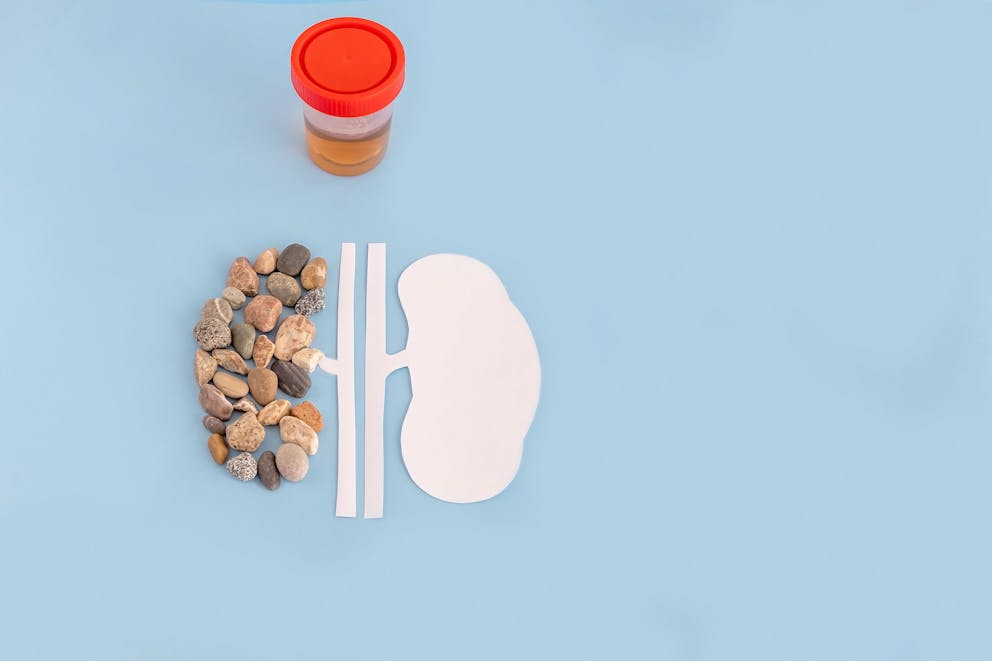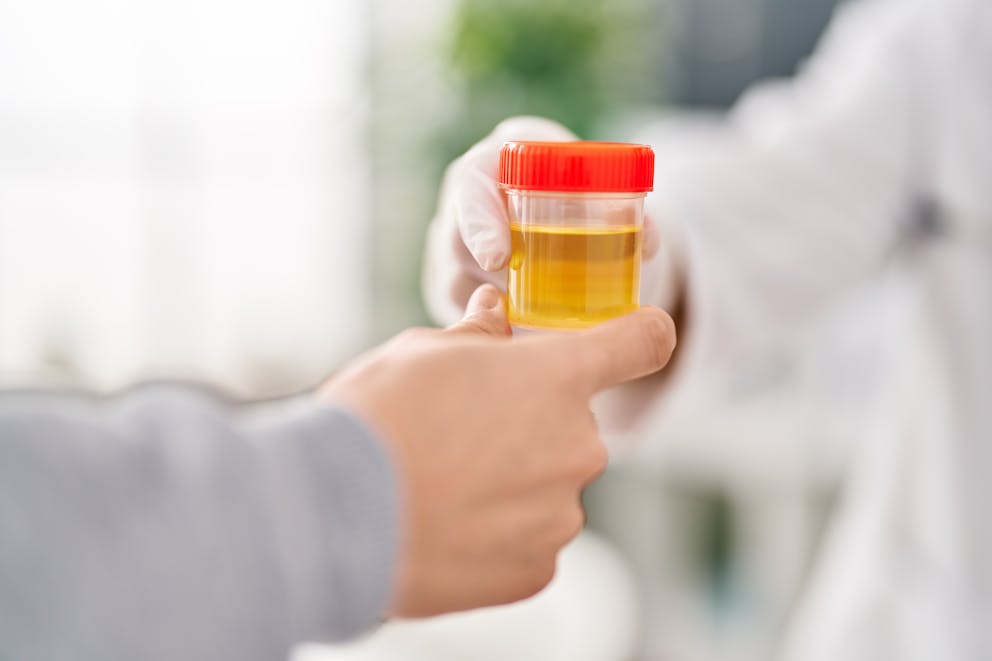Why Do I Have Blood in the Urine After Exercise
Have you ever finished an intense workout only to discover blood in your urine? This startling experience is known as exercise-induced hematuria. While alarming, it's more common than you might think and often temporary.
As someone who's seen many cases of exercise-induced hematuria, I'm here to shed light on this topic. Let's explore when it's time to seek medical attention for this unsettling post-workout surprise.
Understanding Blood in Urine After Exercise
Exercise-induced hematuria is the presence of blood in urine after physical activity. This can range from microscopic amounts only detectable through lab tests to visible discoloration of urine.
Although it might seem alarming, in many cases, it's a temporary condition that resolves on its own. The intensity and duration of your workout play a significant role in the likelihood of experiencing blood in urine.
Strenuous activities like long-distance running, intense cycling, or contact sports are more commonly associated with this condition.
Common Causes of Exercise-Induced Hematuria
Several factors can contribute to blood in urine after exercise. Let's explore some of the most frequent causes:
Bladder trauma: The jarring motion of high-impact exercises can cause the bladder walls to bump against each other, leading to minor bleeding.
Dehydration: Insufficient fluid intake during exercise can concentrate urine, causing irritation and frequently leading to a urinary tract infection.
Foot strike hemolysis: Repetitive impact during running can damage red blood cells in the feet, releasing hemoglobin that's filtered through the kidneys.
Kidney stress: Intense exercise can temporarily reduce blood flow to the kidneys, potentially causing damage to small blood vessels.
When Kidney Stones Are the Culprit
One of the most common reasons for blood in urine after exercise is kidney stones. These hard deposits of minerals and salts can form in your kidneys and cause significant discomfort.
During physical examination, your doctor can check for various symptoms that might point to this. During exercise, especially high-impact activities, these stones can move and scrape against the kidney's inner lining, leading to bleeding.
If you're prone to kidney stones, you might notice blood in your urine more frequently after workouts. The jarring motion of running or jumping can exacerbate the problem, causing the jagged edges of the stones to tear the inside of your kidney.
If this is the case for you, you may experience other symptoms like frequent urination, pain while urinating, and pain in your lower back or side.
Preventing Blood in Urine After Exercise
While not all cases of exercise-induced hematuria can be prevented, there are steps you can take to reduce your risk:
Stay Hydrated
Proper hydration is crucial for maintaining kidney health and preventing urinary tract irritation. Make sure to drink plenty of water before, during, and after your workouts.
You should also limit things that can lead to dehydration like alcohol and caffeine. Aim for clear or light yellow urine as an indicator of good hydration.
Gradually Increase Exercise Intensity
Sudden increases in exercise intensity or duration can shock your body, potentially leading to hematuria. Gradually build up your workout routine to allow your body to adapt and reduce the risk of urinary tract trauma.
If you have any underlying medical conditions, talk to a medical professional before starting any new workout routines.
Choose Low-Impact Exercises
If you're prone to exercise-induced hematuria, consider incorporating more low-impact activities into your routine. These are good for people of all ages and fitness levels.
Swimming, cycling, or using an elliptical machine can provide excellent cardiovascular benefits without the jarring impact of running.
Address Underlying Conditions
If you have a history of kidney stones or other urinary tract issues, work with your healthcare provider to manage these conditions effectively. This may involve dietary changes, medication, or other treatments to prevent recurrence.

Dietary Considerations for Preventing Kidney Stones
If kidney stones are the root cause of your blood in urine after exercise, making some dietary adjustments can help prevent future occurrences. Here are some foods to limit or avoid:
Spinach.
Peanuts.
Almonds.
Tea.
Chocolate.
These foods are high in oxalates, which can contribute to the formation of certain types of kidney stones. However, it's important to note that dietary needs can vary based on the type of kidney stones you're prone to developing.
Drinking enough fluids helps to prevent blood clots which are another possible cause of hematuria. Your healthcare provider might suggest getting a urine cytology if they suspect cancer. This involves looking at your urine sample under a microscope to look for cancerous cells.
Uric Acid Stones and Protein Intake
If you're following a ketogenic diet or consuming high amounts of protein, you might be at increased risk for uric acid stones. A ketogenic diet forces the body to burn fat instead of carbohydrates.
In this case, moderating your protein intake could be beneficial. While protein is essential for muscle recovery and overall health, excessive amounts can lead to increased uric acid production.
Supplements for Stone Prevention
Certain supplements can help prevent kidney stone formation and potentially reduce the occurrence of blood in urine after exercise. Two options worth considering are:
Potassium Citrate: This supplement can help alkalize urine and prevent stone formation.
Hydroxy Citrate: Available at health stores or online, hydroxy citrate is particularly effective at preventing both oxalate and uric acid stones. It may even help dissolve existing stones.
Always consult with a healthcare professional before starting any new supplement regimen, especially if you have existing health conditions or are taking medications.
When to Seek Medical Attention
While blood in urine after exercise is often harmless, there are situations where it warrants medical attention.
Make sure to see your doctor right away if your symptoms are severe or if you are concerned about your health in any way. Here are some signs that you should consult a healthcare provider:
Persistent hematuria: If blood in your urine continues for more than 24 hours after exercise or occurs regularly, even with light activity.
Pain or discomfort: Experiencing pain in your lower back, sides, or during urination along with hematuria. You may have a kidney infection or an enlarged prostate.
Other symptoms: Fever, chills, or unexplained weight loss accompanying blood in urine.
Risk factors: If you have a history of urinary tract infections, kidney disease, or are taking blood thinners. Kidney disease can put you at a higher risk for many other diseases. The leading causes of kidney disease are diabetes and high blood pressure.
A healthcare provider can perform tests to rule out more serious conditions such as bladder or kidney infections, tumors, or other urological issues. If it's determined you do have a more serious medical condition, they will be able to come up with the best treatment plan for you.
Diagnostic Procedures for Persistent Hematuria
If you're experiencing recurrent episodes of blood in urine after exercise, your doctor may recommend several diagnostic procedures to identify the underlying cause:
Urinalysis
This simple test examines a urine sample for the presence of red blood cells, bacteria, and other substances that might indicate infection or kidney issues. If there are bacteria in your urine, you will likely need antibiotics. This test is painless and noninvasive.
Imaging Tests
Ultrasounds, CT scans, or MRIs can provide detailed images of your urinary tract to detect kidney stones, tumors, or structural abnormalities. They can also be used to determine how well your kidneys are functioning.
Before a CT scan, you may need to avoid food and drinks for a certain amount of time.
Cystoscopy
In some cases, your doctor might recommend a cystoscopy, a procedure that uses a thin tube with a camera to examine the inside of your bladder and urethra. If you need to have this done, they may numb the area or give you medicine to help you relax.
Treatment Options for Exercise-Induced Hematuria
The treatment for blood in urine after exercise depends on the underlying cause. In many cases, simple lifestyle modifications can effectively manage the condition:
Rest and Recovery
If your hematuria is due to intense exercise, taking a break or reducing the intensity of your workouts can allow your body to heal. In some cases, this may be the only treatment that is needed. Try doing less strenuous workouts like walking instead of high impact ones.
Hydration Therapy
Increasing your fluid intake, especially during and after exercise, can help flush out your urinary system and reduce irritation.
The goal is to make your urine light yellow or clear. To avoid becoming dehydrated, take drinks with you to your workouts and sip on them throughout.
Medication
In some cases, your doctor might prescribe medications to address underlying conditions contributing to hematuria, such as antibiotics for urinary tract infections or medications to help pass kidney stones.
They may also be able to prescribe something to relieve any pain you might be experiencing.
Dietary Changes
As mentioned earlier, adjusting your diet to reduce oxalate-rich foods or moderating protein intake can help prevent kidney stones and associated hematuria. You may want to consult with a registered dietician to see if your diet is meeting all of your nutritional needs.
Long-Term Management and Prevention
Managing blood in urine after exercise is often about finding the right balance in your fitness routine and overall health habits. Here are some long-term strategies to consider:
Regular Check-ups
Schedule regular check-ups with your healthcare provider, especially if you have a history of urinary tract issues or kidney stones. Your prostate gland can enlarge as you age which may lead to hematuria.
Early detection and management of underlying conditions can prevent complications.
Balanced Nutrition
Work with a nutritionist or dietitian to develop a proper diet that supports your fitness goals while minimizing the risk of kidney stone formation and other urinary tract issues. What is considered a proper diet for one person may not be the same for someone else.
Stress Management
Chronic stress can impact your overall health, including kidney function. Incorporate stress-reduction techniques like deep breathing exercises into your routine.
When you are stressed, your body goes through a number of changes such as an increase in heart rate and blood pressure.
Proper Exercise Technique
Ensure you're using proper form during your workouts to minimize the risk of trauma to your urinary tract. Consider working with a certified fitness trainer to refine your technique. Having the right technique can also prevent injuries while exercising.

Post-Workout Red Flags
Highlights the importance of recognizing unusual signs after exercise, such as blood in urine and oily urine. These symptoms could indicate dehydration, kidney issues, or muscle damage.
If you notice these changes, it's crucial to consult a healthcare professional to ensure proper diagnosis and treatment.
Conclusion
Blood in urine after exercise can be a concerning experience, but it's often a temporary condition that resolves on its own. You may even be asymptomatic, which means you experience no symptoms.
By understanding the potential causes, taking preventive measures, and knowing when to seek medical attention, you can manage this issue effectively.
Remember, staying hydrated, gradually increasing exercise intensity, and addressing underlying conditions like kidney stones are key steps in preventing exercise-induced hematuria.
If you experience persistent or severe symptoms, don't hesitate to consult with a healthcare professional. With the right approach, you can continue to enjoy the benefits of exercise while maintaining your urinary tract health.
Previous blog
Stents May Be the Patch But Whats the FixNext blog
Live Longer by Not Eating Weird But True
Popular
08/21/2024
53.6K views
02/23/2025
45.4K views
11/18/2024
270.1K views
03/18/2024
11/21/2022




